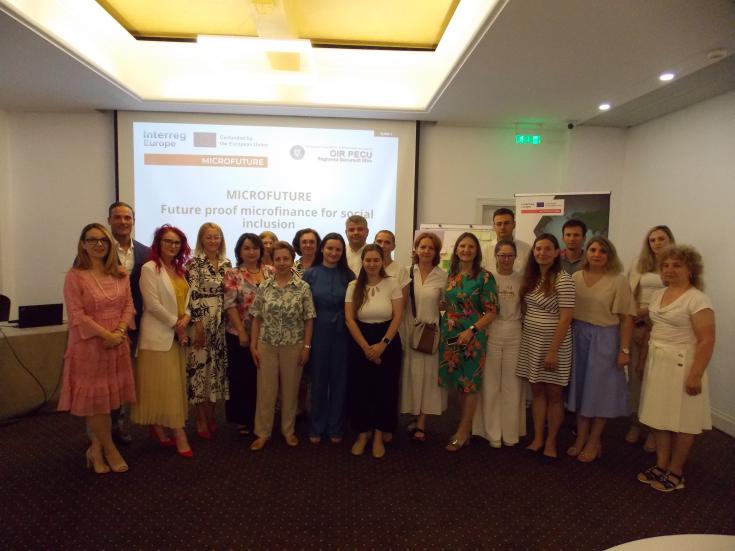1st STAKEHOLDER GROUP MEETING HELD IN ROMANIA
The meeting began with an opening address by Mr. Silviu Ancuța, the Executive Director of OIR PECU Bucharest-Ilfov. He introduced the project team and handed the floor to Alexandra Cârcu, the MICROFUTURE Project Manager, who emphasized the significance of the MICROFUTURE project for local communities. The event featured presentations and interactive sessions showcasing best practices and successful projects in the fields of social economy and microfinance.
The meeting was attended by various stakeholders, including Mariana Năstase, Deputy Executive Director of OIR PECU Bucharest-Ilfov, representatives from government institutions, the business community, non-governmental organizations, and universities. These participants had the opportunity to interact and explore potential collaboration opportunities to support the MICROFUTURE project.
Oana Mitea, Head of Service from the Ministry of Labour and Social Solidarity, highlighted the role of the social economy in Romania and Europe. She stressed that the social economy plays a vital role in providing quality employment, particularly for vulnerable groups, and contributes significantly to reducing poverty and social exclusion.
Another notable guest was Ashoka Romania, an organization active in 95 countries, supporting a network of social entrepreneurs and innovators from various social fields. Their fellowship program assists members in developing and implementing creative ideas for social innovation.
Felicia Relenschi presented AFIN, the first non-banking financial institution in Romania exclusively dedicated to the social economy sector. AFIN aims to facilitate funding access for economic operators with social impact to support their development and sustainability.
Raluca Preluca, a Structural Funds partner, provided insights into social innovation funding in Romania and shared initiatives and projects supporting social entrepreneurs. She emphasized the need for better regulation and facilitation for investors in the social economy field.
One of the key moments of the event was a group discussion where participants identified the main challenges faced by microfinance in the social economy and social innovation in Romania. The teams presented their findings, and possible solutions were proposed.
In conclusion, the meeting emphasized the importance of continuing the dialogue and collaboration to promote the social economy and microfinance as essential instruments for sustainable development and social inclusion. The event served as a valuable platform for knowledge-sharing, experience exchange, and community strengthening among stakeholders.
